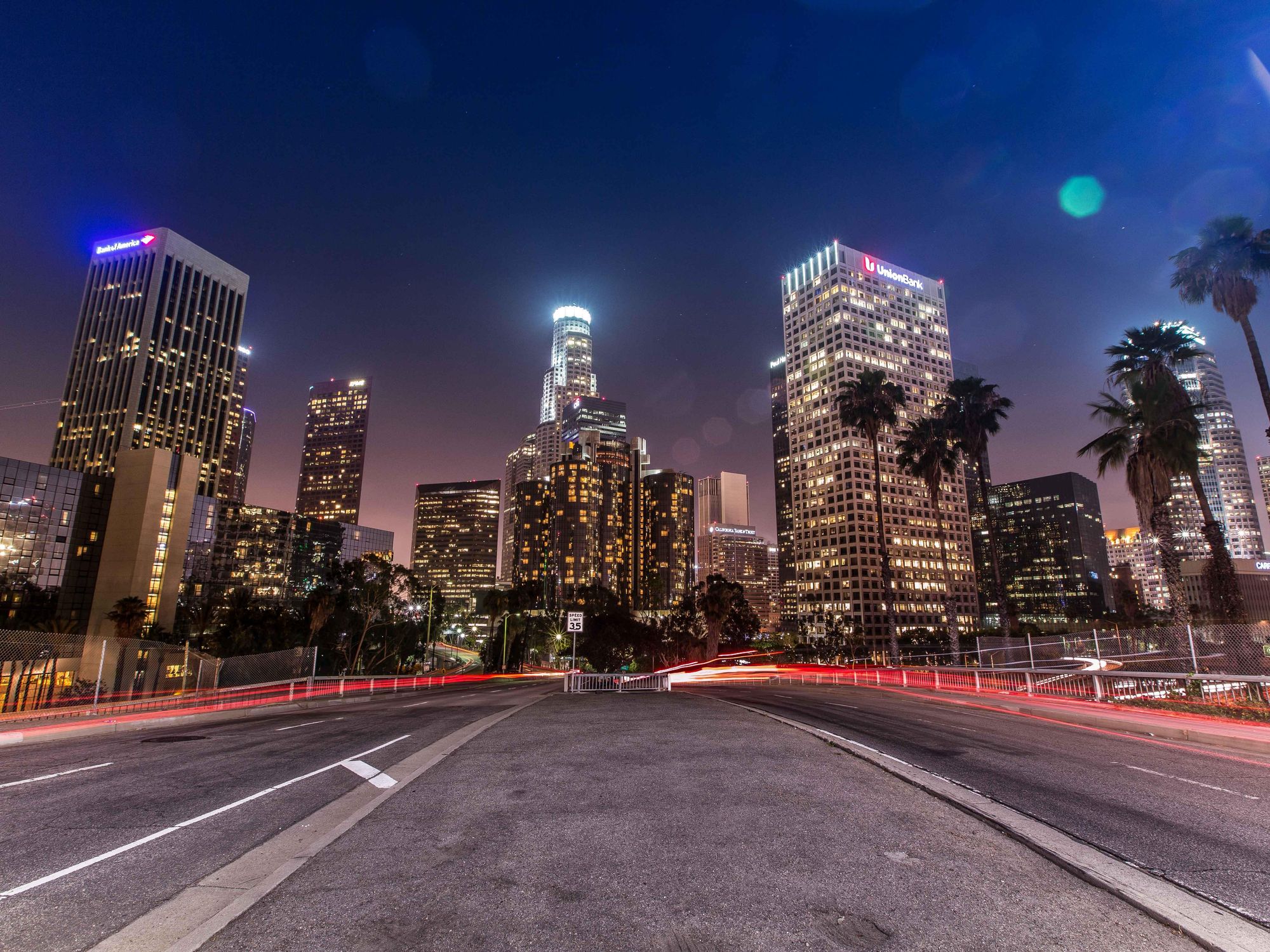LA is Paying Designers, Artists to Get Small Business Online
Francesca Billington is a freelance reporter. Prior to that, she was a general assignment reporter for dot.LA and has also reported for KCRW, the Santa Monica Daily Press and local publications in New Jersey. She graduated from Princeton in 2019 with a degree in anthropology.

As the pandemic devastates small businesses and creative freelancers, Los Angeles is hiring designers and artists in a novel bid to help the local economy recover.
Mayor Eric Garcetti last week launched a new program of online tools for small businesses, along with a plan to hire creative professionals to match with owners impacted by the pandemic. Graphic designers, artists and others will be given a $500 city grant in exchange for services to brick-and-mortar businesses that have been harmed by the stay-at-home orders.
"COVID-19 has changed everything — the way we communicate, work, socialize, and shop — and our brick-and-mortar stores need to rapidly rethink how they reach their customers, market their goods, sell their products, and thrive when so much business is happening online," Garcetti said in a statement.
The program, called LA Optimized, will funnel over $1.5 million in funds to about 1,000 businesses across the city over the next year, with an emphasis on those serving low-income communities, the mayor's office said. It's a partnership between the city and the ArtCenter College of Design and verynice, an L.A.-based design strategy firm that allots half of its work to nonprofits.
This year, revenue generated by small businesses in California fell by 29.3%. According to a September report, Los Angeles holds the highest number of permanent closures in the nation since March 1.
Small business leaders of color have been disproportionately hurt by the pandemic, but those that remain open attribute their reliance to having embraced technology, according to a report produced by Google and the Connected Commerce Council.
The precipitous drop in foot traffic on Black Friday, traditionally one of the busiest shopping days, exposed just how the deep economic impact has been for traditional retail as the economy has been pushed further online.
California is pushing its own effort to encourage small businesses to get online. In September, the state launched a series of workshops with Google to help companies grow their digital presence.
Garcetti's initiative launched Nov. 25 will focus on getting companies online with digital marketing tips and help building or improving websites to boost ecommerce sales.
A creative advisory board including verynice will make matches between graphic designers and small business owners. Roberto Martinez, the mayor's recently appointed entrepreneur-in-residence, will oversee the program.
"It's next-level pro bono," said verynice founder Matthew Manos. "It could be an initiative that ignites the creative community as well as small businesses."
He said creatives can apply for the project later this month.
Small business owners can apply with just their company name, address and business tax registration certificate number. They must operate in L.A. city, generate less than $5 million and have started operations before March 2020.
Businesses that qualify for the program will be selected beginning January 2021.
- LA Optimized Aims to Get City's Small Business to Ecommerce - dot.LA ›
- Gov. Newsom to small biz: "Let's get ahead of the queue" - dot.LA ›
- A New Program Gets LA Small Businesses Online - dot.LA ›
- A New Program Gets LA Small Businesses Online - dot.LA ›
- A New Program Gets LA Small Businesses Online - dot.LA ›
- A New Program Gets LA Small Businesses Online - dot.LA ›
- A New Program Gets LA Small Businesses Online - dot.LA ›
- A New Program Gets LA Small Businesses Online - dot.LA ›
- A New Program Gets LA Small Businesses Online - dot.LA ›
- A New Program Gets LA Small Businesses Online - dot.LA ›
- ReCharge Raises $277M for its Ecommerce Subscription - dot.LA ›
- Amazon Called Out for ‘Tremendous Inequity’ in Tax Revenue ›
- Event: Ecommerce Week LA - dot.LA ›
Francesca Billington is a freelance reporter. Prior to that, she was a general assignment reporter for dot.LA and has also reported for KCRW, the Santa Monica Daily Press and local publications in New Jersey. She graduated from Princeton in 2019 with a degree in anthropology.




 Image Source: Tinder
Image Source: Tinder Image Source: Apple
Image Source: Apple